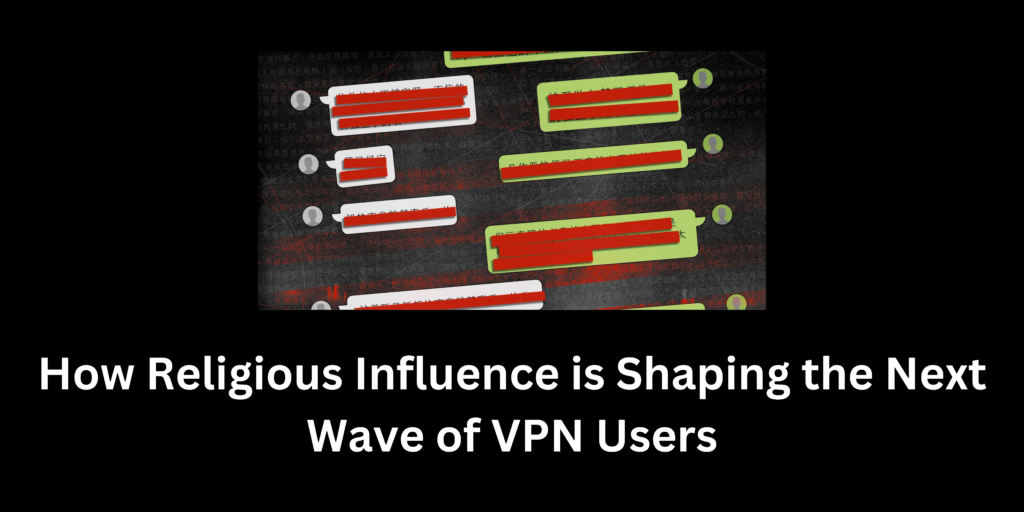
In recent years, an unexpected alliance has emerged between religious institutions and political leaders. Their common goal? Shaping the rules of the internet. The Catholic Church, along with other conservative religious groups, has found a new mission—pushing for restrictions on adult content online.
This initiative, aimed at preserving moral values, has sparked a rise in VPN usage as individuals seek to bypass these digital boundaries. But what’s really going on here? Let’s explore the intricate relationship between faith, politics, and the evolving landscape of internet access.
How Religious Institutions Became Internet Watchdogs
For decades, religious groups have positioned themselves as moral compasses in society. From advocating traditional family values to opposing certain types of media, their influence is both deep and longstanding. Now, this influence extends to the digital sphere, particularly targeting the availability of adult content online.
In states like Texas and North Carolina, religious institutions have lobbied hard for policies aimed at restricting access to adult websites. Why? They argue it’s about protecting young people and maintaining community values. But the outcome has been far-reaching, especially for how people access content online.
Restrictions in Texas and North Carolina
Texas has become a central figure in this new digital battleground. Recent laws require adult websites to implement stringent age verification measures. Users must prove they are over 18 through digital ID checks—adding an extra layer of scrutiny. While the intent might seem noble, many see it as an overreach that threatens privacy.
North Carolina follows a similar path. It has also introduced tough regulations, putting pressure on websites to verify users’ ages. Some platforms find these rules too complex to navigate, opting instead to block access entirely for North Carolina residents. This creates a frustrating experience for users, but it’s a win for religious groups pushing for tighter controls.
VPNs: The Unexpected Heroes of Digital Freedom
With these new restrictions in place, how are people responding? VPNs have become the go-to solution. By masking a user’s location, VPNs allow individuals to access restricted content without being subject to local laws. Suddenly, a person in Texas or North Carolina can browse the internet as if they were in a state with more lenient rules.
Here’s where it gets interesting. VPN providers have seen a surge in demand from these states, tailoring their marketing to appeal to users looking for privacy and unrestricted access. It’s almost ironic—policies meant to curb access have instead driven more people to seek out tools that help them bypass those same restrictions.
The Political and Religious Alliance: A Perfect Match?
What’s driving this push for online restrictions? The answer lies in a unique synergy between religious groups and conservative politicians. In states like Texas, where religious conservatism aligns closely with political power, this alliance thrives. Religious groups argue that the regulations are necessary to protect children from harmful content. They frame their efforts as a moral responsibility, and politicians are often quick to support such initiatives.
For these politicians, backing these policies is a win-win. It satisfies their religious voter base while reinforcing their own conservative credentials. It’s a partnership where both sides see gains, but it leaves internet users navigating a maze of new rules and limitations.
Consequences for the Adult Industry and Digital Rights
The adult industry, unsurprisingly, has not taken these changes lightly. Legal challenges have emerged, with claims that these restrictions infringe on free speech and violate internet freedoms. Websites have had to adapt, either complying with new rules or facing the financial consequences of being blocked in certain states.
For many platforms, the cost of compliance is simply too high. Rather than navigate the legal complexities, they’ve chosen to shut off access to users in Texas and North Carolina altogether. This creates a digital divide, where the internet experience varies drastically depending on where you live.
Users Fight Back: The VPN Surge
For the everyday internet user in these states, the new restrictions can feel like a digital crackdown. Many turn to VPNs not just for accessing adult content but for protecting their privacy. Concerned about potential surveillance and tracking, they see VPNs as a safeguard against government overreach.
This isn’t just speculation. VPN companies report increased demand from states with these strict regulations. They market themselves as champions of online freedom, promising users a way to keep their browsing habits private. It’s a dynamic that few could have predicted—a wave of new VPN users driven by religiously influenced policy changes.
A Growing Trend or a Digital Backlash?
The situation in Texas and North Carolina could set the stage for what comes next in the U.S. If other states follow their lead, the push for online content restrictions could grow. But this also raises a crucial question: will the rise in VPN usage counterbalance these efforts? As more people seek out ways to bypass restrictions, the battle for digital freedom continues.
Yet, there’s no denying the power of religious influence in shaping these policies. As religious institutions position themselves as defenders of morality, the tug-of-war over internet access shows no signs of slowing down. The future of internet freedom in the U.S. might just hinge on how this battle unfolds.
What Does This Mean for Internet Users?
So, what does all of this mean for you, the average internet user? It’s a reminder that internet freedoms are never set in stone. As policies change and new restrictions emerge, the tools you use to access content may evolve as well. VPNs, once a niche tool for tech enthusiasts, are becoming a mainstream necessity in certain states.
And while religious groups may see these policies as a moral victory, the surge in VPN use suggests that many users are unwilling to give up their digital privacy so easily. It’s a modern story of resistance, where the desire for unrestricted access drives users to adopt new technologies.
A Battle of Values in the Digital Age
The clash between religious values and digital freedoms is far from over. As religious institutions continue to push for stricter internet regulations, and VPN use rises in response, we are witnessing a new chapter in the ever-evolving story of internet access. It’s a complex dance of power, privacy, and the pursuit of a free web.
Whether you side with those advocating for tighter controls or those fighting for unfettered access, one thing is clear—this battle will shape the future of the internet for years to come. And in that future, VPNs might just be the unlikely heroes standing between users and a more controlled digital landscape.



